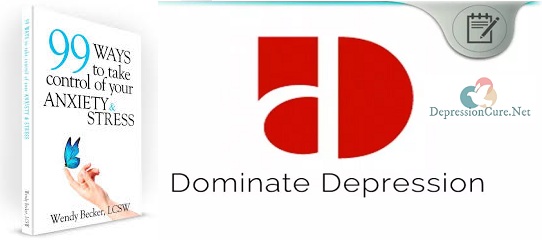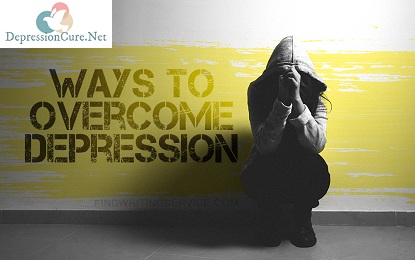Introduction
I know that I should have to feel happy or sad or angry or surprised, but I did not. I feel numb, empty, and completely detached. And, I did not even sometimes feel like me. We sometimes talk about the pain which is associated with depression, the feelings of guilt, sadness, or hopelessness. (Emotional Numbness)
We also speak about the overwhelming emotions; we talk about the intensity and their persistence, which can urge the question, is it better to feel nothing at all from all of them?
Emotional numbness refers to a different person subjective experiences of an inability to feel the emotions, sometimes accompanied by a lack of concern and care for oneself and others. Some other symptoms of emotional numbness may include the below-written points:
-
- Feelings of hollowness or emptiness
- Lack of interest, motivation, or pleasure in any of the activities in life.
- Being unresponsive and dull to the environment
- Staying away from social life.
- Feeling alone while around other people.
- An inability to react towards the environment.
- Being unable to express in front of others through talking, emotions, or crying.
- Sense of feeling to self-harm.
- Feeling trapped.
- Feeling of heaviness.
- The feeling of detached from one’s body or mind.
- Having out of the body experience.
- Diminished mental alertness.
- Creating risky behaviors to feel something.
Why do we feel and experience emotional numbness?
Emotional numbness can be thought of as a depletion of the emotional resources which following a period of the hyperarousal. In other words, whenever we are exposed to the high levels of stress or the emotional turmoil for an extended period, it feels like our body shuts down the emotional system to protect us from this immense painful experience.
Ways To Make Yourself Emotionally Numb – How to Make Yourself Emotionally Numb
Feelings of an emotional numbness have also been described in a state of depersonalizing ? this refers to a state in which our sense of self and subjective experience are modified like that a person feels alone from other surrounding peoples.
Whenever healthy people exposed to dangerous or potentially life-threatening situations, then many of them report experiencing some of the symptoms of depersonalizing, suggesting which is a typical experience in response to the extreme emotional pressure like experienced by the person with depression.
Hence, it has been theorized that the person who is experiencing the emotional numbness or depersonalize persistently may have a lower verge due to the duration and the intensity of this negative emotional situation.
It is also unsurprising that there are many people with PTSD who may also experience the emotional numbness in a state of hyper-arousal over a while.
What happens in the brain of an emotionally numb person?
Studies and researches had shown that when compared to healthy controls, individuals experiencing depersonalize show the reduction in neural activity in some areas of the brain, which is associated with emotional processing, especially the left anterior insula when they were exposed to the averse images.
Additionally, this region was naturally more active in the patients who were reported improvement in their experiences of the depersonalize as opposing to those who had not improved till now/ not at all.
Click Here To Read: 20 Ways To Do Meditation – How To Do Meditation
What are the causes of emotional numbness?
There are so many different things that can cause emotional numbness. Anxiety and depression and are two of the most common causes of emotional numbness.
Severe levels of acute elevated nervousness or stress can also trigger feelings of emotional numbness. Post-traumatic stress disorder, which can be connected to anxiety and depression, can cause a person to feel numb too.
Few medications can also cause numbness in patients. Some most common offenders are medications that are used to treat depression and anxiety. Some of these medications can affect the brain process of mood and emotions.
There are some other ways by which emotional numbness can occur. Stress hormones can flood your systems, which can cause various reactions in the body of the patient, which can lead to emotional numbness.
For example, stress hormones can affect the patient’s limbic system. The limbic system is placed near the center of our brain, which is responsible for our emotions.
Hormones of stress can also affect a few other hormones in our body, which can turn and affect our mood. Both of the effects can cause us to feel numb.
In some of the cases, our body can become so stressed and tensed that we become overtaxed physically and emotionally fatigued ? this reduction both physical and emotional energy, which creates emotional numbness.
Are there any treatment options in this problem?
As with some other types of mental illness and diseases, a combination of both the medication and talking therapy come out to be very useful. Drugs like selective serotonin reuptake inhibitors (SSRIs) which appears to be very useful as they work by increasing the levels of serotonin (a neurotransmitter which contributes to feelings of happiness) in our brain.
Talk therapies like CBT or trauma therapy can also help dispatch the underlying causes of emotional numbness and developing coping strategies to work through all of these.
Everyday activities which allow us to get in the touch with our bodily sensations like getting a massage, mindfulness practices, exercising, swimming journal writing or catharsis (e.g., screaming into a pillow, using negative or sad thoughts to stimulate sadness and crying etc.) may also be very useful strategies to put into practice on a regular basis.
Click Here To Read: 25 Ways To Forget Unwanted Memories – How to Forget a Bad Memory
Feeling emotionally numb can also be debilitating and alienating experience; while we may lighten the experience of emotional pain, we can also become emotionally numb to the positive experiences.
All the way must keep in mind that with the right supports, help, and coping strategies, a patient who is suffering from emotional numbness can overcome.
Even though how it may feel, emotional numbness is not permanent in anyone’s life. Treatment of emotional numbness is available, which provides both quick, immediate relief and long-term remission.
The first step towards treating the emotional numbness is to identify it and treat the underlying causes of this problem. Your doctor can help you in this, yet your doctor may refer you to a psychiatrist or therapist.
And by them, you will be asked about what type of medications you take and what kind of other symptoms you are suffering from. If your doctor/ therapist thinks one of your drugs is not working, then your doctor may substitute it with some other medicine or therapy.

Quick Relief Options from Emotional Numbness
To get quick relief from emotional numbness, you can try several treatment options which are written below:
Make an appointment with a psychiatrist:
A psychiatrist can change your medications or prescribe you some new medicines. They can also offer you coping techniques that can help you to regain your emotional feeling again.
The medicines which they prescribe you maybe act fast and can provide you fast relief. While antidepressants usually take about six weeks to start working, and your doctor may prescribe you anti-anxiety medication while the other drug starts build in your system.
Depend on Your Support System:
Even if you are having trouble connecting and reaching out to the peoples who love you. They may be able to help you to join, and you may also find relief in telling them what you are experiencing. By telling them your problem, you can feel yourself lighter, which will reduce stress from your mind.
Exercise:
Exercise is one of the best things you can do. Running, jogging, swimming, yoga, tai chi, and basketball are great to get relief from stress, even taking a walk around your neighborhood can also help flood your brain with endorphins. Do exercise daily to get the best results.
Get plenty of sleep:
If you can get at least 8 hours of good quality sleep every night, it will surely help you to improve your mood very quickly.
Note: Depression Cure does not provide any type of medical advice, diagnosis, or treatment.





